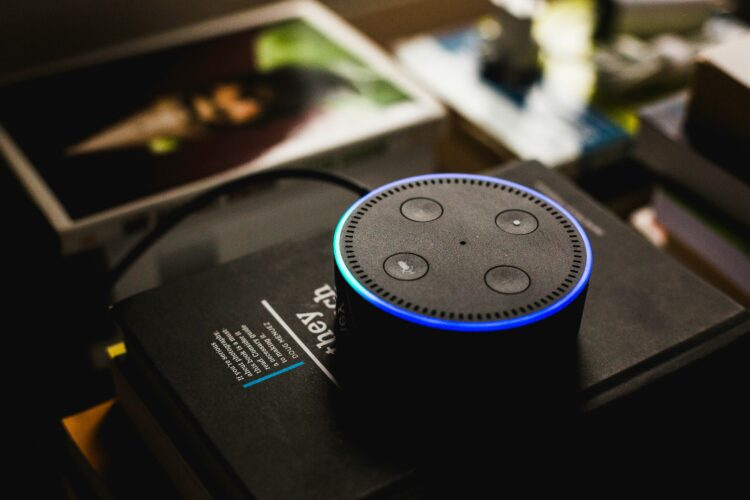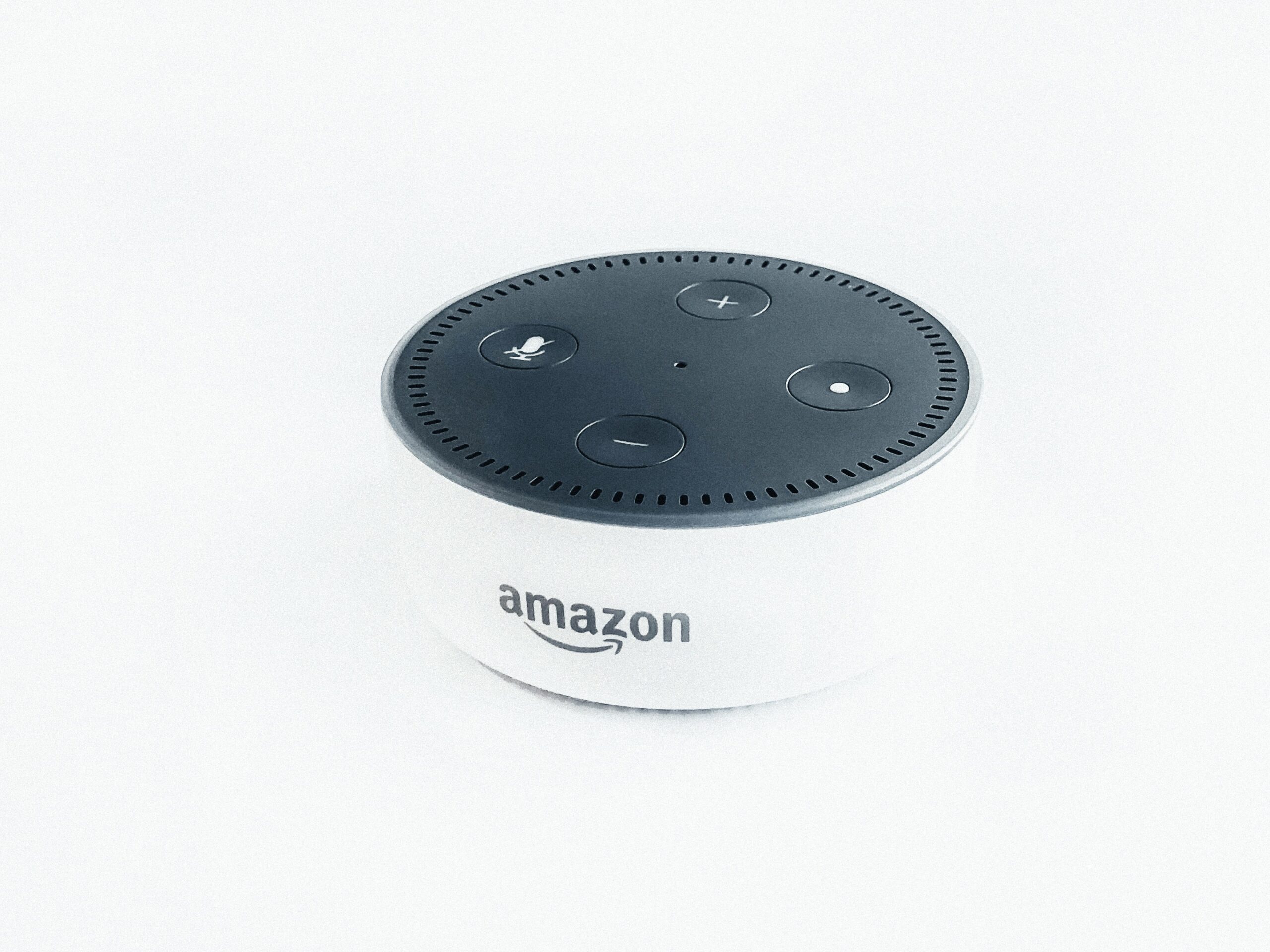

The fusion of Artificial Intelligence (AI) with voice search marketing leads to a transformative shift in how brands connect with their audience.
As AI advances, it refines voice search algorithms, tailoring the search experience to align with user behavior and spoken language.
Brands now leverage this technology to enhance customer interactions, making them more intuitive through virtual assistants like Amazon Alexa and Google Assistant.
The adoption of smart speakers and AI personalization is reshaping the marketing landscape, inviting an era where every uttered word can become a pivotal touchpoint between a consumer and a brand.
Keep reading to explore the latest advancements in AI that are optimizing voice search experiences.
Key Takeaways
- AI Advancements in Voice Search Marketing Are Enhancing User Experiences Through Improved Accuracy and Personalization
- Marketers Are Adapting Strategies to Align With the Rise in Voice Search Adoption, Recognizing the Importance of Conversational AI
- Smart Speakers and Virtual Assistants Are Becoming Household Staples, Reshaping Consumer Behavior and Expectations in Search
- Customized Voice Search Experiences Are Setting New Standards in Digital Marketing, Pushing Innovation in AI-driven Content Creation
- Companies Investing in AI for Voice Search Marketing Are Future-Proofing Their Brands for a Landscape Dominated by Voice-Driven Interactions
Tracing the Roots of AI in Voice Search Marketing

The trajectory of Artificial Intelligence (AI) in voice search marketing is an intriguing tale that finds itself deeply intertwined with advances in technology and consumer behavior.
The early days saw innovators grappling with the challenge of creating machines that could understand not just written text, but the nuances of spoken language.
Brands keen to optimize customer experience and accessibility began to explore voice search as a tool to reach their target audience, leading to the early adoption of voice recognition by search engine marketing pioneers.
Along this journey, several milestones marked the transition into the AI era, setting the stage for a revolution in how users interact with the web.
Early Adoption of Voice Recognition in Search Marketing
The proactive adoption of voice technology by search engines and digital marketers signals a substantial change in user behavior. Recognizing the convenience of speech over typing, pioneers in search marketing integrated voice recognition capabilities into their platforms to meet the changing preferences of users. This strategic initiative foresaw the rise in demand for voice commands and laid the foundation for advanced AI integration in user interface design.
- Search engines incorporated voice recognition, acknowledging the potential of a hands-free, conversational interaction.
- Digital marketers recognized the trend toward voice queries and adapted their strategies to align with voice search optimization.
- Initial voice technology integrations focused on understanding user intent and delivering relevant search results quickly and accurately.
Milestones in the Pre-Ai Era of Voice Search
Before AI became a cornerstone of voice search, the landscape saw several significant developments: Innovators were building the foundation for future advancements with technologies that experimented with speech recognition and understanding, personalization, and machine learning.
| Year | Development | Impact on Voice Search |
|---|---|---|
| Early 2000s | Basic voice recognition | Set the stage for voice-activated search |
| Mid-2000s | Emergence of smartphones | Increased demand for hands-free technology |
| Late 2000s | Initial machine learning algorithms | Laid groundwork for AI integration and better user experience |
AI’s Role in Refining Voice Search Algorithms

Significant advancements in AI have not only refined predictive search behaviors but have also greatly improved language processing capabilities. This enhancement enables search algorithms to navigate the subtleties and intricacies of natural human communication.
This intersection of innovation provides a platform to delve into how machine learning has boosted the precision of voice queries, the progression of anticipatory search patterns, and the continuous improvement of natural language understanding within the search ecosystem.
How Machine Learning Catalyzed Voice Query Accuracy
The advent of machine learning has been transformative for voice search accuracy, allowing virtual assistants to discern meaning from a myriad of accents, dialects, and phrasing styles.
Through the continual sampling and analysis of voice data, neural networks gain the ability to predict user intent more effectively, cutting through ambient noise and ensuring that voice search technology not only hears but truly understands the user’s requests. This precision aids search engines in delivering more relevant and personalized search results, thereby elevating customer satisfaction in their digital interactions.
The Development of Predictive Search Behaviors
The refinement of predictive search behaviors, fostered by advancements in AI, has streamlined the journey from query to solution, anticipating the needs of consumers before they fully articulate them.
This shift in search dynamics, powered by data-driven insights and advanced analytics, empowers brands to meet their consumers in moments of decision with unprecedented accuracy, nurturing a symbiotic relationship between voice search platforms and user expectations.
Enhancing Language Processing Capabilities for Search
The integration of Natural Language Processing (NLP) within AI platforms has been crucial in enhancing the user experience in voice search marketing. Through sophisticated NLP techniques, these platforms can now interpret and respond to spoken queries with a degree of understanding previously unattainable. This paradigm shift not only improves the accuracy of search results but also enriches the interaction between users and AI, creating a more intuitive search environment.
| Advancement | Description | Contribution to Voice Search |
|---|---|---|
| Natural Language Understanding | AI’s ability to grasp context and meaning in conversation. | Allows for more natural dialogues with virtual assistants and better accuracy in delivering search results. |
| Neural Networks | Complex algorithms that mimic human brain function. | Enhances AI’s pattern recognition, leading to more personalized user experiences. |
| Sentiment Analysis | Identification of emotions within speech. | Enables AI to tailor responses based on the user’s emotional state, adding a layer of personalization. |
The Surge of Smart Speakers and Voice Search Marketing

As smart speakers like Amazon Echo and Google Assistant have entered households, their influence on voice search marketing has expanded exponentially.
Major tech companies have not only entered the fray but have aggressively sought to innovate and dominate this burgeoning space, fostering an environment ripe for market expansion.
This momentum has dramatically shaped consumer behavior, bolstering voice search adoption and presenting marketers with new challenges and opportunities.
As smart devices become integral to daily routines, marketers are learning to navigate this novel terrain by leveraging AI to offer more personalized and effective customer engagement through voice interaction.
The Entrance of Major Players and Market Expansion
Market dynamics in voice search marketing shifted notably with the entrance of tech giants like Amazon and Google, whose investments in smart speakers such as Amazon Alexa and Google Assistant have brought AI into the mainstream. This wave of innovation has not only catalyzed market expansion but also set new standards for customer service and user experience, prompting brands across industries to rethink their digital marketing strategies to embrace voice-enabled interactions.
Impact on Consumer Behavior and Voice Search Adoption
The widespread integration of smart speakers into daily life has fundamentally altered consumer behavior, creating an expectation that convenience in search is not merely a luxury but a necessity.
The shift towards voice search adoption indicates a growing trust in AI to comprehend and execute spoken requests, effectively altering the way consumers interact with technology and seek information.
Addressing Challenges in Marketing Through Smart Devices
As voice-activated devices continue to claim their spot as household staples, marketers encounter the pressing need to fine-tune strategies in a landscape where traditional visual cues and text-based content hold less sway. Tailoring marketing initiatives to fit the audio-centric format demands creativity in crafting memorable brand messaging that resonates with users through voice alone, challenging companies to rethink engagement and refine the integration of AI-driven insights for a unique and effective presence on these smart platforms.
The Integration of AI Personalization in Voice Search

The advent of AI personalization in voice search marketing marks a substantial move towards providing customers with a customized and dynamic experience. A one-size-fits-all approach is no longer adequate; businesses are adeptly utilizing AI to shape search experiences that intuitively adjust to individual preferences and behaviors.
By conducting detailed analyses of customer data, brands acquire profound insights, allowing them to fine-tune content strategies tailored specifically for voice search. The outcome is an immersive experience, intricately tailored to each user, reshaping the interactive landscape with personalized search that aligns seamlessly with both spoken commands and user expectations.
Creating Tailored Search Experiences With AI
Artificial Intelligence is revolutionizing voice search by introducing a level of personalization that feels almost human-like. AI engines analyze past interactions, preferences, and even sentiment to deliver search outcomes that resonate with individual users. This smart personalization strategy enriches the user experience, making every voice search interaction an intuitive extension of the consumer’s unique needs and expectations.
Unlocking New Dimensions of Customer Data Analysis
By scrutinizing vast datasets from user interactions, AI personalization engines are now capable of discerning intricate user preferences, leading to more resonant search experiences:
- Data-driven AI models sift through search patterns, learning from user history to enhance future interactions.
- Behavior insights guide the development of voice search content, ensuring relevance and contextual alignment with user needs.
- Advanced analytics facilitate hyper-personalized user experiences based on nuanced understanding of individual behavior and preferences.
Adapting Content Strategies to Personalized Voice Search
Content strategies are swiftly morphing to cater to the unique demands of voice search, as personalization becomes a deciding factor in brand success. Marketers are now harnessing AI to curate content that is not only informative but also tailored to individual user patterns, enhancing relevance and engagement in the voice-driven digital sphere:
| Strategy Element | Objective | AI’s Role |
|---|---|---|
| Dynamic Content Creation | To deliver real-time, context-aware information. | Natural Language Generation (NLG) helps create content that mirrors human conversation and adapts to current user context. |
| User-Centric Customization | To craft experiences that resonate on a personal level. | AI analyzes user data to fine-tune search results, offering a more personalized content delivery. |
| Interactive Engagement | To maintain user interest and brand loyalty. | Chatbots and virtual assistants employ AI to engage users with interactive and relevant dialogue, making each interaction unique. |
Conversational AI and Its Effects on Voice Search Strategy

The integration of Conversational AI into voice search strategies is reshaping the digital marketing landscape. The incorporation of chatbots within voice search ecosystems is revolutionizing interactions to closely mimic human conversation, fundamentally transforming search marketing.
This evolution holds the promise of heightened user engagement, allowing brands to establish more robust connections with their audience. We are witnessing an era characterized by the seamless integration of conversational AI interfaces, where each spoken query may soon prompt a personalized, intelligent response, fundamentally altering the nature of search interactions.
Rise of Chatbots in Voice Search Ecosystems
The integration of chatbots into voice search represents a leap forward in creating more interactive and efficient customer service experiences. These AI-powered tools are shaping a new dimension in the search ecosystem, enabling a dialogue that is both responsive and tailored to individual user inquiries.
| Feature | Function | Role in Voice Search |
|---|---|---|
| Chatbots | Automated messaging and assistance systems | Providing immediate responses to user queries, enhancing the customer experience |
| Conversational Interfaces | Platforms that mimic human conversation | Facilitating natural interactions that keep users engaged and informed |
| Personalization | Adaptation to individual user preferences and history | Delivering personalized responses to voice search, improving relevance and satisfaction |
Close Human-Like Interactions Shaping Search Marketing
As virtual assistants process and deliver language with near-human creativity and insight, the conventional search experience is becoming a true conversation, enhancing customer engagement and shaping future marketing strategies.
The Ongoing Evolution of Conversational AI Interfaces
The landscape of voice search is reshaped by advancements in Conversational AI interfaces. These systems are increasingly adept at parsing the subtleties of human speech, which allows for more fluid and natural interactions between technology and users: The spoken word becomes the steering wheel in a journey of seamless, voice-driven navigation.
| Development Stage | Improvements in Conversational AI | User Experience Enhancement |
|---|---|---|
| Initial Voice Recognition | Basic command processing | Enabled hands-free search and simple tasks |
| Introduction of NLP | Grasping nuances of language | Improved understanding and contextually relevant results |
| Ongoing AI Evolution | Refinement in dialogue systems with advanced neural networks | Engaging interactions akin to human conversation, boosting usability and satisfaction |
Preparing for the Future of AI in Voice Search Marketing

As voice-powered technology advances, understanding and adapting to the evolving search patterns of consumers is imperative.
Businesses must gear up to future-proof their marketing approaches by leveraging AI developments that promise enhanced voice search capabilities.
The anticipation of next-generation tech means cultivating agility in marketing strategies to harness the full potential of voice search, ensuring brands not only stay relevant but lead in a voice-first market reality.
Embracing Change in Consumer Search Patterns
Marketers must stay attuned to shifts in consumer search patterns, recognizing the growing predilection for voice search across diverse demographics. Acknowledging this trend, brands can fine-tune their content to demonstrate an understanding of their audience, ensuring messages are naturally interwoven into the fabric of everyday life, led by voice.
| Behavioral Shift | Impact on Voice Search | Marketing Adaptation |
|---|---|---|
| Preference for Voice Commands | Rising usage of voice over typing for search queries | Marketers enhance their search engine optimization for spoken language patterns |
| Desire for Prompt Answers | Expectation of immediate, accurate responses from voice-activated devices | Focus on rapid content delivery while maintaining conversational relevance |
| Routine Use of Smart Speakers | Integration of voice search into daily activities | Brands develop voice-specific campaigns that intuitively fit into users’ lives |
Future-Proofing Marketing Strategies With AI Developments
Companies today are increasingly channeling their investment into AI technology to ensure their voice search marketing remains agile amidst rapid industry changes. By fostering innovation and adopting new AI capabilities, businesses are positioning themselves to harness the evolving intricacies of voice search, ready to meet the future demand for spontaneous, conversation-based customer interaction.
Anticipating Next-Generation Voice Search Capabilities
The horizon of voice search technology is expanding as AI advances promise unparalleled enhancements in understanding and responding to user needs. Businesses poised to thrive are those monitoring these technological feats, preparing to deploy next-generation virtual assistants that can process complex queries with a profundity that verges on the realms of true artificial intelligence. This proactive stance ensures that voice search capabilities evolve in concert with customer expectations, fostering a search marketing ecosystem that’s both instinctive and revolutionary.
Conclusion
The evolution of AI in voice search marketing is fundamentally reshaping the relationship between brands and consumers.
As technological advancements like natural language processing and machine learning enhance the accuracy of voice queries, businesses are tuning their marketing strategies to the nuances of spoken language.
The rise of smart speakers has further accelerated consumer adoption of voice search, compelling marketers to prioritize personalized, voice-driven interactions.
Companies are now leveraging AI-driven insights to craft personalized experiences that resonate with individual preferences, facilitating a shift towards more naturalistic and conversational engagement with consumers.
In anticipation of future developments, brands are investing in AI to advance the sophistication of voice search marketing, ensuring they remain competitive in a rapidly changing landscape that values immediacy, convenience, and relevance.
The integration of conversational AI into voice search ecosystems is not just revolutionizing the marketing domain but also promises to continue driving a more intuitive and satisfying user experience.

Comments